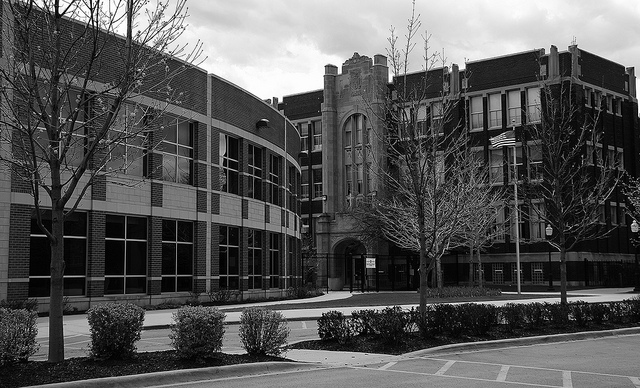Chicago School Board Passes Another Odious Budget
By Chuck Sudo in News on Jul 24, 2014 9:00PM
The Chicago School Board unanimously approved a $5.76 billion operating budget for Chicago Public Schools’ 2014-15 fiscal year Wednesday during a contentious meeting where opponents shouted their objections.
Even the school board acknowledged the budget was particularly fragile, as it’s based on speculation and some accounting trickery. The budget calls for 14 months of property tax revenue to pay for 12 months of spending, and CPS will increase their property tax lien to the maximum amount under state law for the third time in as many years under Mayor Rahm Emanuel’s administration. School Board member Henry Bienen admitted the reliance on an extra two months of property tax revenues could tighten even further CPS’ cash flow problems, damage the district’s bond rating and result in higher interest rates for bonds issued by CPS. Bienen called it “worrisome.” That’s an understatement.
Opponents of the budget are more concerned with the $72 million in cuts to neighborhood school budgets while CPS funnels more money to charter schools. How deep are some of these cuts? The receiving schools that absorbed the students affected by last year’s closing of 50 neighborhood schools will see their budgets slashed by 5 percent, for starters. Having a full-time librarian in a school seems to be going the way of the Edsel and analog television. CPS budgeted for 254 librarians this year; two years ago they had 454.
Speaking of extinct programs, CPS dropped the lone remaining electrical program for students in the district at Simeon Career Academy, over the objections of parents, teachers and even Ald. Howard Brookins. CPS CEO Barbara Byrd-Bennett said the program was scrapped for a lack of enrollment rather than being a budget cut, but money is saved regardless of semantics. There’s a plan in place to reorganize bus aides for disabled students that would save $6 million, but the district is looking to spend $2 million to hire more public relations specialists.
CPS, as it has consistently done, lays the blame for the budget on ballooning pension payments because of course, and the School Board is hoping the Illinois Legislature will come to the rescue with pension reform solutions. Government watchdog group The Civic Federation said the budget is untenable. The group’s vice president, Sarah Wetmore, called the budget “a stop-gap measure” heavy on “gimmicks” like using 14 months of revenue to pay for 12 months of spending. Wetmore added CPS is running the risk of losing the public’s trust “in the district’s ability to be an efficient steward of taxpayer funds.”
Sorry, Ms. Wetmore, many of us have already lost faith in CPS to handle money. They’ve been robbing from Peter to pay Paul for years, a practice that has become increasingly obvious under the Emanuel administration. This year’s budget contained only one line—one line—regarding expenditures and the continued commitment to new charters and programs will only cause CPS’ structural deficit to grow like a black hole.
Access Living, a local group that advocates for the disabled, said CPS’s refusal to address their structural deficit is the reason they’re opposed to the budget. The group’s budget analyst, Ron Estvan, told the Sun-Times.
“I wish the one thing they would heed would be to have a broad discussion about the all the inputs for revenue and stop this constant referencing to ‘the state has to come in and save us.’”
Someone needs to save Chicago Public Schools, from their own hubris and their compulsive tendency to throw more money at the mistakes they’ve made in the hopes for a quick fix. And stop demonizing the Chicago Teachers Union about pension payments. It takes two sides to negotiate a labor deal and the School Board signed off on these. CTU Jesse Sharkey said Wednesday the time to wait for relief from Springfield is over and “now the onus falls on the mayor to properly fund the public schools.”
“By using 14 months’ worth of revenue in this fiscal year, it pushes the problems of funding into next year—until after the election, and into a contract year,” Sharkey added. “CPS has been banking on solving their budget problems through pension theft—but the Illinois Supreme Court ruling that protected retiree benefits has negated that strategy.”
